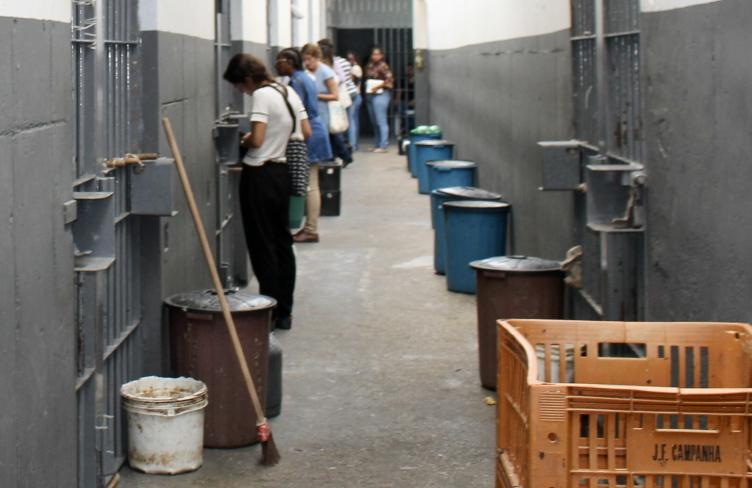
The Association for the Prevention of Torture (APT) recently joined a weeklong training workshop organised by the National Council of Justice Brazil (CNJ). The event sought to train 27 consultants who will support judges to improve custody hearing procedures, enabling the prevention of ill treatment and torture.
A hearing before a judge within 24 hours of detention is essential for detainees. It provides an opportunity for judges to spot any signs of ill-treatment and hear testimony first hand. Called custody hearings, they exist as safeguards against ill-treatment, with the potential to prevent torture. Together with the National Council of Justice of Brazil (CNJ), the APT is working to improve the conditions in which they take place. By building on the skills of judges, the objective is also to enhance the hearings’ effectiveness as a tool to document signs of torture and ill treatment and enable accountability.
As part of a two-year project launched by CNJ, called Justice Present (“Justiça Presente”) aimed at strengthening the Brazilian judicial system’s custody hearings, the APT was invited to participate in a weeklong workshop with the CNJ, in partnership with United Nations Office on Drugs and Crime (UNODC).
The purpose of the workshop was to train 27 CNJ consultants to enable them to help judges detect signs of torture, follow-up on suspected cases of abuse and implement good practices. Each consultant will be assigned to a different Brazilian state and will work closely with judges and other officials in the judicial system, providing technical support in the operationalisation of custody hearings.
At the opening of a high-level panel connected to the workshop, Minister Dias Toffoli, current President of the Supreme Court of Brazil and of CNJ, highlighted the key role custody hearings play in the Brazilian judicial system and their potential to combat torture and ill treatment.
“We supported the consultants to improve detection of torture and ill-treatment. We covered different issues such as the preventive approach, the definition of torture and ill-treatment, operational conditions of custody hearings and best practices for judicial authorities to inquire into police officers’ conduct and hear complaints,” explained Sylvia Dias, the APT’s National Representative in Brazil. “The first hours of detention are when detainees are at the greatest risk of ill-treatment or torture. Custody hearings, therefore, are key as they provide a window into the detainees’ treatment during this period and are an opportunity for detainees to report before a judicial authority on any kind of aggression, physical or mental, threat or coercion suffered. Unquestionably, if implemented in alignment with the objectives they were conceived to fulfil, custody hearings are one way the judiciary can lead on torture prevention”
“The initiative launched by CNJ through the project “Justice Present” has enormous potential to generate long-term change in practices in custody hearings nationwide. We are delighted to have the opportunity to partner with them in creating this change,” Barbara Bernath, the APT’s Secretary General said. “The APT is committed to supporting the training of consultants and the further development of standards.”
First introduced in Brazil in 2015, custody hearings have already had an important impact. Around 250,000 detainees saw a judge within 24 hours of arrest between February 2015 and June 2017, reducing the number of people sent to pre-trial detention, where the probability of facing violent treatment is increased. More work remains, however, as in Brazil, which has the third largest prison population in the world, pre-trial detention continues to be the norm rather than the exception.
The APT has been working to strengthen custody hearings in Brazil since 2016. Last year monitoring visits to custody hearings were held in the states of Alagoas, Mato Grosso and Rio de Janeiro (see here for a video on the APT’s work on custody hearings) A series of good practices were identified (such as transparent and open sessions and the right of access for families), and trainings were conducted with 50 criminal judges. Going forward, the APT will continue to work closely with the CNJ and the Brazilian Judiciary, Public Prosecution Offices and Public Defender Offices.


